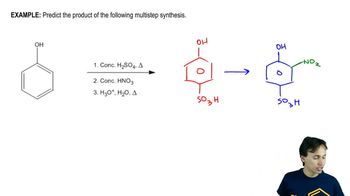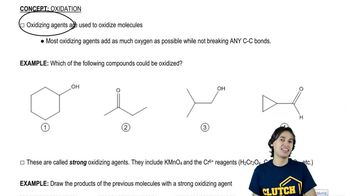Show how you would convert the following starting materials to the indicated nitriles:
(c) p-chloronitrobenzene → p-chlorobenzonitrile

 Verified step by step guidance
Verified step by step guidance Verified video answer for a similar problem:
Verified video answer for a similar problem:



 3:50m
3:50mMaster Intro to Carboxylic Acid Derivatives with a bite sized video explanation from Johnny
Start learning